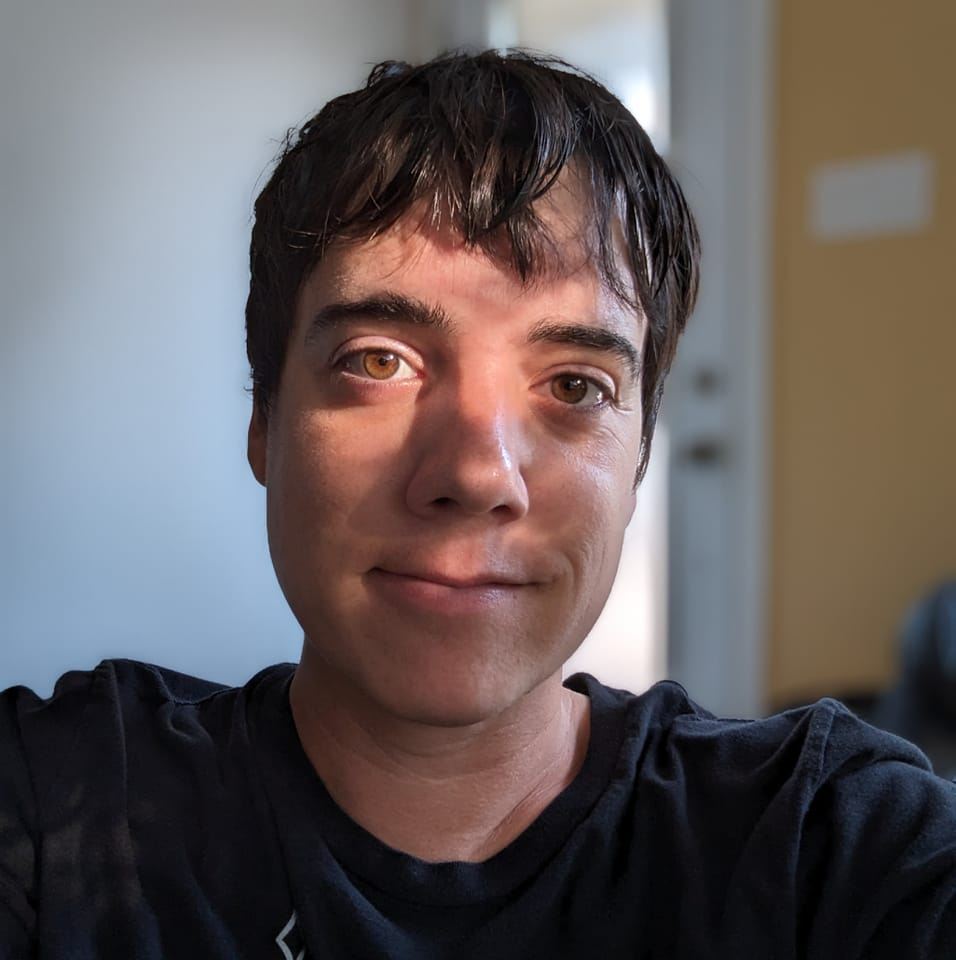Mental health is a subject that I consider touchy for this blog. This is the site both prospective employers and extended family will find when they my name, and given the stigma that persists around mental health issues, makes me sensitive to being open about this subject.
On the other hand, this is also a blog, my blog, and it has been for twelve years now. Some level of candid discussion about my current life is something I do want for this.
A few posts ago I mentioned that I was going to see a therapist. He didn’t work out, unfortunately. Therapists are like relationships – what may be great for one person doesn’t necessarily work out for another.
In this case, the therapist’s inexperience in handling clients that weren’t straight, cisgender, vanilla, monogamous couples was obvious and became a blocker. Inexperience doesn’t necessarily translate into inadequate care from a therapist, but it did in this case.
He couldn’t seem to get over the fact that I was trans.
He would bring up my trans status every single session, even though it was unrelated to the topic at hand. He asked me about my genitals (“have you had the surgery”) and used the derogatory “shemale” to reference women like me. He brought up how recently I came out a number of times, in a context that appeared to imply that my gender identity was as recent of an invention.
His education on trans issues came from popular media. He referenced that a few times. On our last session he talked about an episode of Law & Order where a trans person is killed. He didn’t seem to get how an episode about a trans woman, written by cis people and played by a cisgender man, had no value to me other than as a study of harmful stereotypes.
Anyone who understood that I am a woman, not a man pretending to play a woman, would see how flawed and hurtful any of this is. They would get that “shemale” is derogatory and reductive, that it’s as rude to ask me about genital surgery as it is any other woman when it has nothing to do with the care at hand, and that having a man play trans women isn’t something I celebrate.
There was also a bit of erasure. He pushed back on the assertion that my dating pool is smaller as a result of my being trans. I told him it was intellectually dishonest to suggest that I had as large of a dating pool as a cis person. I gave him examples of the nasty messages I’ve gotten on dating sites specifically because I was perceived as trans, and how television shows and movies mock those who date trans people.
Like having disabilities or being a person of colour, being trans carries with it a socially imposed penalty on desirability, and by denying that it unfairly shifts all of the blame on me.
In the spirit of giving him the means to expand his horizons a bit, I presented him with a list ofresources, starting with John Oliver’s well-researched 14 minute segment on trans issues. He never ended up checking any of them out.
While that was unfortunate, it wasn’t that which pushed me to sever my care with him. It’s when we got to talking about sex.
I don’t like sex. That goes back to childhood trauma.
My therapist believed that I couldn’t have a meaningful relationship without liking sex. He thought maybe I didn’t like sex because I wasn’t using enough lube, which was comical given that I was slated to give a sex education workshop, and suggested I introduce sex to masturbation fantasies. I explained to him that introducing sex was about as mood killing as thinking about my grandmother. He was insistent, and I followed his advice. I predictably ended up feel awful.
That’s when I decided to drop him.
I can, of course, have a healthy relationship without sex. I think that what was going on here was that his understanding of healthy relationships was very limited. It felt like he had only been exposed to a very few kinds of people in his life – seemingly straight, monogamous, cisgender, and vanilla. He projected that lack of exposure in his unimaginative approach.
That lack of exposure also came across when we talked about my existence outside heteronormativity, and in particular around being poly. One reason I’m poly is that it allows me to have romantic relationships with partners while they can find that sexual satisfaction and more in other partners. It allows for stronger relationships. The therapist saw this poly in a negative light, bringing up the flaky relationships of heterosexual swingers he knew as an example.
It wasn’t an informed comparison. Straight swingers aren’t known for having worked on their relationship issues around multiple partners. They tend to be more monogamous arrangements with temporary extras as sexual partners. People who self-identify as polyamorous meanwhile tend to have all partners in equal standing and be far more inclined to work on themselves to make the relationships work. Someone who would of had any exposure outside of the very narrow focus of the straight vanilla community would have known this.
That’s not to say that these sessions were without value. I learned a useful phrase when coping with grief and with recognizing that I have trouble accepting my emotions as valid. Also being able to talk, freely, for all this time was a release.
I’ll keep looking for a therapist. I might look for one that’s explicitly LGBT friendly.

